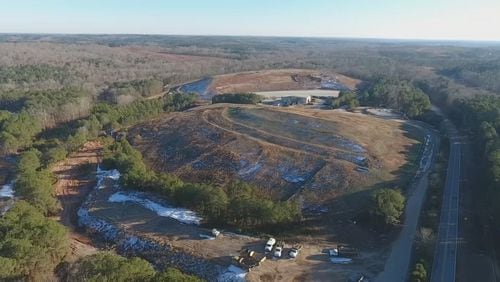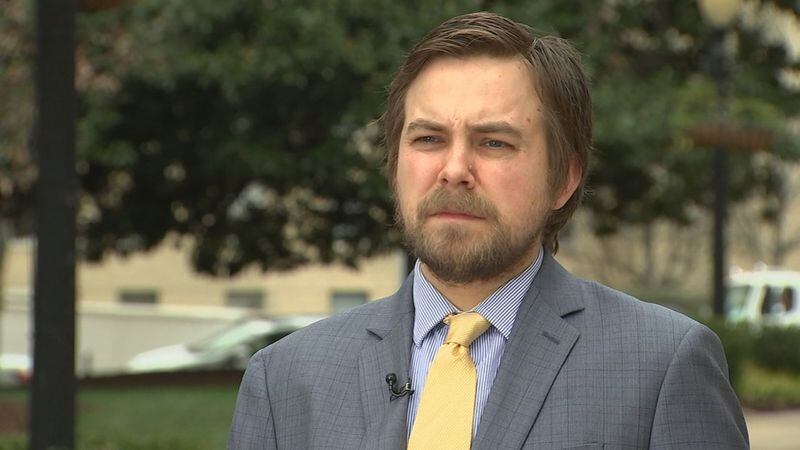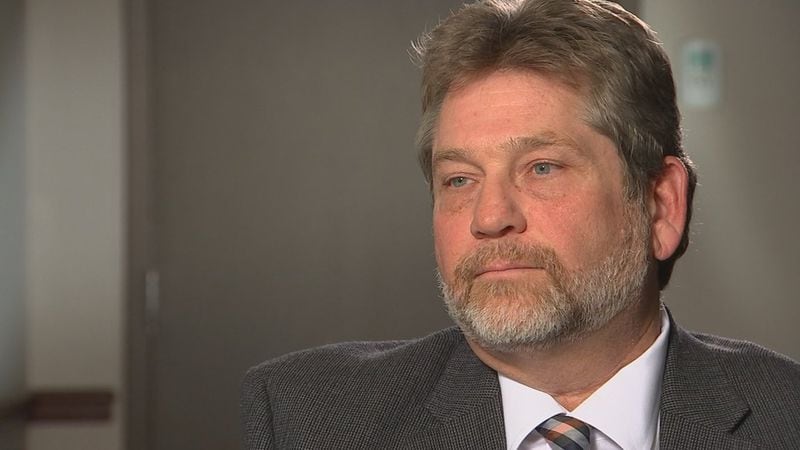Georgia has more than 500 hazardous sites in need of costly cleanup, but the state routinely shorts the trust fund that’s supposed to pay for them.
Less than half the $14.5 million in fees the state collects on average for hazardous waste cleanup each year is spent on that need, according to a Channel 2 Action News analysis of state budget figures. The rest goes into the state’s general fund for other purposes.
“We find that a lot of people had no idea this was going on,” said Jesse Demonbreun-Chapman with the Georgia Water Coalition. The issue of the hazardous waste sites was included in the Georgia Water Coalition’s publication, “Dirty Dozen: 2017’s Worst Offenses Against Georgia’s Water.”
“They assumed that like SPLOST or any other kind of business you might interact with, when you’re told you’re paying for something, you get that in return, and that’s just not, simply, not the case with these fees,” Demonbreun-Chapman said.
There are 528 sites on the state’s cleanup list, ranging from closed dry-cleaning businesses to old landfills.
The Newton County Landfill was added to the state’s list in 2001. An unlined cell that received garbage for the county from 1987 to 1998 has contaminated groundwater with 20 regulated substances. Since the state’s Environmental Protection Division (EPD) has a $2 million-dollar cap on trust fund money used for landfill cleanup, the county has taken out $9.7 million in bonds for waste evacuation and landfill reclamation.
“We know for a fact that there’s a tremendous backlog of hazardous waste sites that are not receiving the remediation that they need,” Demonbreun-Chapman said.
Active cleanup in 10 sites
The trust fund was created in the early 1990s to clean sites deemed hazardous by the state, but money collected first goes to the state’s general fund. Then lawmakers appropriate how much of the money goes toward the intended purpose each year. On average, a little more than 40 percent of money collected is budgeted to the Georgia’s Environmental Protection Division’s Land Branch, which administers the fund and another for solid waste.
The hazardous waste fund is one of several designated funds collecting millions of dollars every year. A 75-cent fee for every ton of garbage dumped in landfills across the state in addition to civil penalties and fines pays for it, while a tire fee pays for the solid waste fund.
The EPD’s Land Branch Chief Jeff Cown said his department doesn’t need extra funds to clean up the state’s hazardous waste sites.
“If we had all the money to clean up all the sites, it would be hard to get the money out the door to properly clean these up,” Cown said.
Cown said the state is currently responsible for cleaning up a 36 of the 528 sites on the list — sites abandoned by the property owners. Contractors around the state perform the actual cleaning. The money is also used to administrate the project.
On average 11 hazardous sites come off the list each year, but an average of eight new sites are added each year. There are 166 sites that have been on the state’s list since 1994 — the year the list was first created.
Currently, just 10 sites are being remediated.
Tonya Bechtler with the Yellow River Water Trail balked at the idea the state doesn’t need more funding to clean up hazardous waste sites.
“If they’ve got that extra money please send it to Newton County,” Bechtler told Channel 2.
Newton County’s Landfill is one of 130 landfills on the state’s hazardous site list. Bechtler said the site’s proximity to the Yellow River makes the ground water contamination a big environmental risk.
“This is a $13 million cleanup to reclaim this and clean up this ground water contamination,” Bechtler said. “Not enough funds, not enough revenue, a massive contamination, no funds collected for closing this landfill, so (the county is) pushing a bolder up hill.”
Ballot proposal at Legislature
State Representative Jay Powell, R-Camilla, told Channel 2 the money collected for designated funds should be allocated for its original purpose on principle alone.
“I think when the Legislature passes these bills, that they intend that it be used for that purpose,” Powell said. “Unfortunately, the appropriations process just lumps all the money that the state receives into one pot … It goes for education, it goes for a lot of good things, but if I am told that that dollar tire fee is to clean up tire dumps and for recycling projects, then I would expect that that’s where the state’s going to use it.”
After a bill passed in 2013 intended to guarantee money collected would go for the intended purpose, Powell said Gov. Nathan Deal questioned the constitutionality of such a law. Powell has introduced a resolution to change the state constitution, which recently passed out of committee. Fees collected would be used for their intended purpose, unless the governor declares a financial emergency.
“You’ve got a conflict between what the Legislature (says) in the statute, and then you’ve got a conflict with the constitution that says it doesn’t matter what the Legislature says. If it’s not in the constitution, it’s not truly dedicated,” Powell said.
If Powell’s resolution passes both houses of the Legislature by a two-thirds majority, voters will decide later this year if the constitution will be changed to dedicate fees to their stated purpose.
If the money isn’t used after that, Powell told Channel 2 he has a simple solution.
“If the … fund is producing more money than we need, then I think they we need to reduce the fee,” Powell told Channel 2. “If I collect a million dollars and I only spend five-hundred-thousand the next year, I can only collect five-hundred-thousand.”
Richard Belcher is an investigative reporter for Channel 2 Action News. Terah Boyd is a special projects producer for Channel 2.








